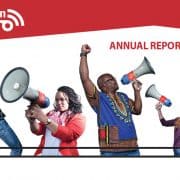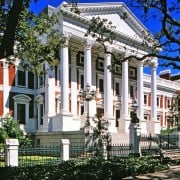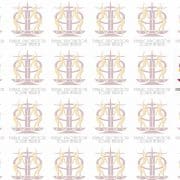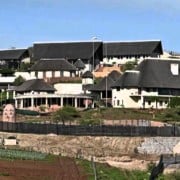|
Getting your Trinity Audio player ready...
|
In its annual report for 2015, released today, Corruption Watch highlights the power of public participation in the fight against corruption. Since we launched in January 2012, we’ve received more than 10 000 reports.
This public activism was reflected in several events during 2015, such as the student fees protests, various anti-xenophobia and –corruption marches, and other mobilisations. Ordinary people have come to us to report corruption – 10 573 as of the end of December 2015 – with 2 382 reporting in 2015 alone. Of these, 71% of reports fell within our definition of corruption compared to 56% in the previous year. We define corruption as the abuse of public resources or public power for personal gain.
“Our overriding mission is to encourage and enable public participation in combating corruption,” said David Lewis, executive director of Corruption Watch. “A key element of the participation that we encourage is for members of the public to report experiences of corruption to us. These reports not only enable us to identify patterns and hotspots of corruption and to devise anti-corruption strategies, but, most important, they enable us to speak with the backing of evidence provided by the public.”
In 2016 the organisation will go on a major drive to increase the volume of reports from the victims and opponents of corruption, Lewis added.
Read the report online at Issuu, or download it.
Absolute truth empowers absolutely
The significantly increased percentage of confirmed corruption reports sent to us suggests that the South African public is growing ever more capable of understanding their own role in the fight against corruption.
This can be attributed to various Corruption Watch initiatives such as regular dissemination of public education materials, widespread media reporting on corruption hotspots, litigation interventions, and increased interaction on social media and digital platforms – all of which are aimed at enhancing public understanding and recognition of corruption. We’ve also put great effort into increasing awareness of our multiple reporting channels available to the public.
Our annual report shows that the corruption hotspots in 2015 are schools (16% of all reports), then traffic and licensing (12%), and immigration, housing and healthcare at 6%, 5% and 3% respectively. Most of our reports were generated in Gauteng – 50% of them came from the smallest province, followed by KwaZulu-Natal at 12%, while the remaining provinces hover between 5% and 7%, with the exception of Northern Cape at 2%.
This does not mean that Gauteng is the most corrupt province – rather that Corruption Watch’s profile is higher here because of the constructive relationships we’ve developed with the Johannesburg Metro Police and the Gauteng Department of Education, among others. Also, Gauteng is home to all national departments located in Tshwane and finally, it has the biggest population of all provinces.
As in previous years, abuse of power made up the bulk of corruption reports at 38%, followed by bribery at 20% and procurement corruption at 14% of the total.
Taking a stand against corruption
2015 was also a year in which we contributed to a number of legislative and policy-making processes, such as our submissions on the public procurement overhaul and the draft FIC amendment bill.
We also participated in several ground-breaking pieces of litigation such as the applications to determine the powers of the Public Protector. This is one institution whose stellar work has particularly benefited us, through its attention to many thousands of reports of petty corruption as well as high-profile cases such as those involving Nkandla and the SABC – thereby showing that nobody is above the law.
We launched a new public awareness campaign, Bua Mzansi, focusing on the appointment later in 2016 of a new public protector. Corruption Watch’s aim is to ensure that incumbent Thuli Madonsela’s successor is chosen through an active and transparent public participation process, so that we get the public protector we want.
The public is encouraged to nominate people that fit the profile of the office and once these nominations are processed, Parliament draws from them and other possible nominees a short list, from which the president then chooses a preferred candidate. The process is open to the public and members of parliament involved in the task should make themselves accessible for questions and information sharing with the public. More information on the campaign is available online.
“It was the best of times, it was the worst of times,” wrote Corruption Watch chairperson Archbishop Njongonkulu Ndungane in his annual report message. We could not agree more.








